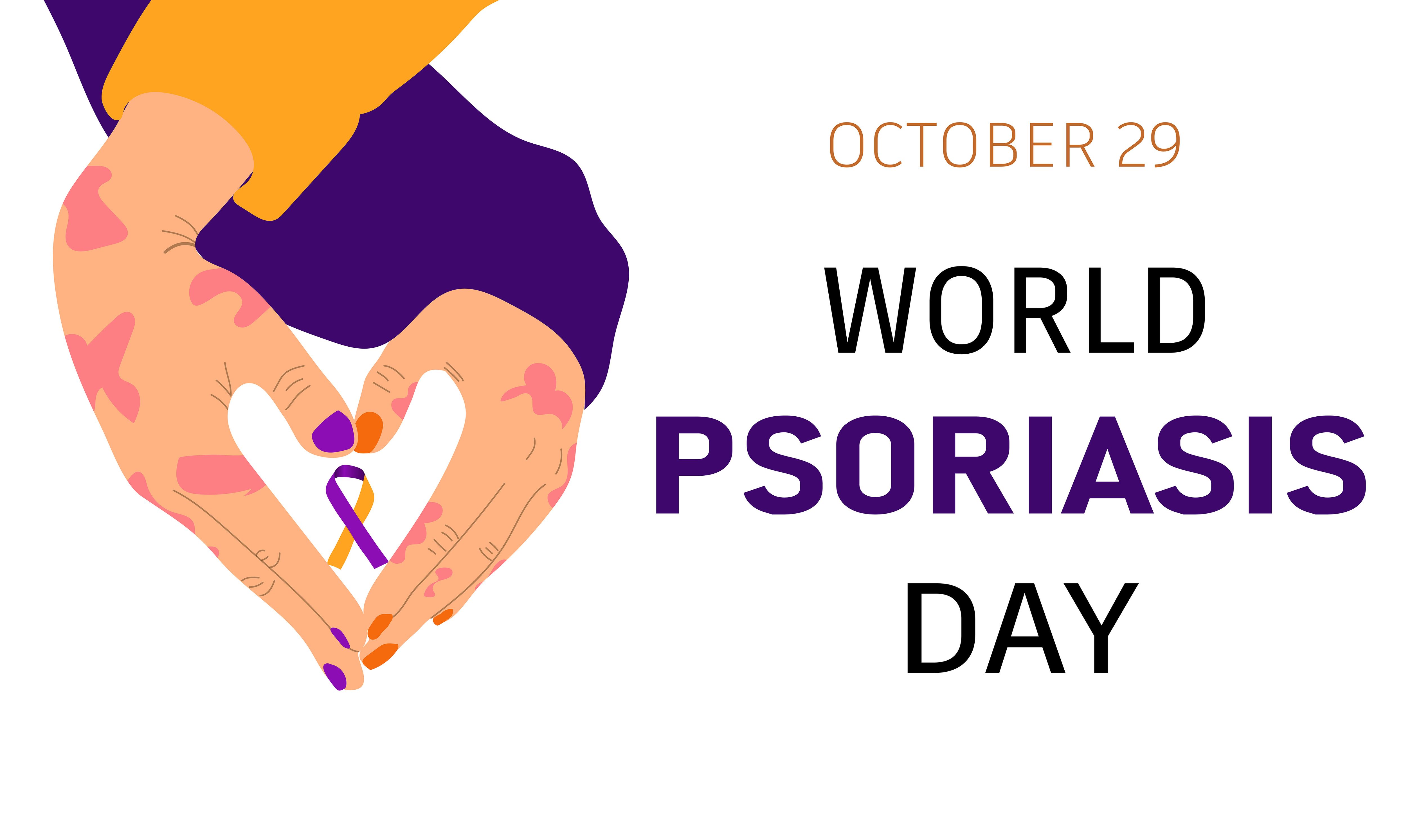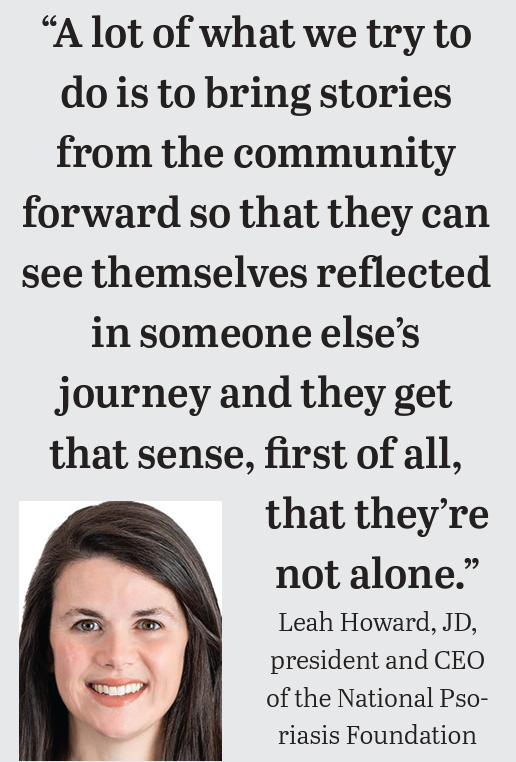- Acne
- Actinic Keratosis
- Aesthetics
- Alopecia
- Atopic Dermatitis
- Buy-and-Bill
- COVID-19
- Case-Based Roundtable
- Chronic Hand Eczema
- Drug Watch
- Eczema
- General Dermatology
- Hidradenitis Suppurativa
- Melasma
- NP and PA
- Pediatric Dermatology
- Pigmentary Disorders
- Practice Management
- Precision Medicine and Biologics
- Prurigo Nodularis
- Psoriasis
- Psoriatic Arthritis
- Rare Disease
- Rosacea
- Skin Cancer
- Vitiligo
- Wound Care
Publication
Article
World Psoriasis Day Highlights Advocacy, Awareness, and Education
Author(s):
Leah Howard, JD, of the National Psoriasis Foundation, discusses the importance of advocacy in psoriasis, the role of mental health in chronic skin conditions, and the role of support organizations in advocating for awareness and health equity.
SaturnO_27/Adobe Stock

Each year for more than a decade, World Psoriasis Day has been celebrated on October 29, with more than 70 countries now joining in and acknowledging the event. Following Psoriasis Awareness/Action Month in August, this year’s theme is “Access for All,” indicative of the dermatology community’s fight to ensure equitable access to health care for patients with the condition.1
Recently, Dermatology Times spoke with the president and CEO of the National Psoriasis Foundation (NPF), Leah Howard, JD, to discuss the importance of advocacy in psoriasis, the role of mental health in chronic skin conditions, and the role of support organizations can advocate for awareness and health equity. Howard has been involved with the NPF for 11 years and is a patient with psoriasis.
Mental Health Advocacy
“The first thing is education—really making sure that both individuals living with psoriatic disease as well as health care professionals understand the way psoriasis and mental health are connected, both from a science, clinical standpoint as well as what it means to carry the burden of a psoriasis diagnosis and ways that might impact someone’s mental health on a day-to-day basis,” Howard said. The NPF runs several educational programs centered around supporting the whole health of patients with psoriatic disease, including ways to improve their lives, mental health, and overall well-being.

Navigating Stigma
“I think there’s a lot of stigma that comes with living with a disease like psoriasis, and many people in the community feel very much alone; they feel like they’re the only one that’s going through that challenge, or they’re the only one that’s having that issue,” Howard said. “A lot of what we try to do is to bring stories from the community forward so that they can see themselves reflected in someone else’s journey and they get that sense, first of all, that they’re not alone.”
Resources and Partnerships
“We have a patient navigation center that serves about 17,000 individuals a year. It’s all free; you can call with any question, any issue, and one of the things that our team of navigators does is to connect people with others in the community,” Howard said.
One such resource is the NPF’s one-to-one program, in which individuals who contact the organization are paired with another individual with psoriasis who serves as a mentor. Mentors undergo training to answer questions, discuss concerns, and develop a long-term resource partnership.
“Our goal with each of these tools, and each of these resources, is to partner with the individual living with psoriatic disease, to develop that confidence and comfort to take that next step in their health care journey and move to a place where their health is better—give them the confidence to have the conversation, for example, with their physician about their quality of life and the issues that they’re struggling with so that they’re able to come up with a treatment plan to tackle the issues that they’re going through,” Howard said. “I think for me and for the NPF, our mission is both to drive efforts to cure psoriatic disease as well as to improve the lives of each individual that lives with it every day. In the last couple of decades, we’ve learned so much about psoriatic disease, and so there’s a lot of hopefulness from that standpoint that science has come as far as it has, and that we know that there are great treatment options available today and so many ways for health care professionals to partner with individuals that live with psoriatic disease to get their health better.”
Reference
- World Psoriasis Day. IFPA. Accessed September 14, 2023. https://ifpa-pso.com/world-psoriasis-day
Newsletter
Like what you’re reading? Subscribe to Dermatology Times for weekly updates on therapies, innovations, and real-world practice tips.








